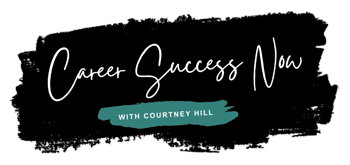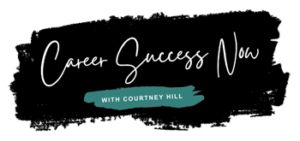- Pre-Interview Preparation Stage
As you continue to navigate your way through the career search process, you may find yourself in the fortunate position of hearing back from contacted companies. How exciting! If a interview is eventually scheduled, what are the first steps you should take? The work on your end does not stop here. If fact, preparation on your end starts here. To begin, it’s always a good idea to research the company.
Consider compiling answers to the following questions about the business before your scheduled interview:
How long has the company been in business?
What products or services do they provide?
What industry is the business in?
Who are other key players in the industry?
How do they stand out from their competition?
Also, consider researching answers to the following questions about the open role before your scheduled interview:
How interested are you in the role?
What are the key day-to-day tasks you will be performing?
What education is the job requiring?
What experience do you need for the role?
If you lack direct experience, do you have transferrable skills you can speak to?
If it helps to write the answers to these questions on paper before your interview, DO IT! This way, if any of these questions are asked during the interview you will have the answers top of mind. If you can’t find the answers to some of these questions, keep note as they may be appropriate to ask at the end of the interview (if given the opportunity).
- Interview Stage
Most people get nauseous at the thought of being asked questions from people that you often don’t know – and that’s ok! We’ve all been there. Make it your goal to feel as prepared as possible for an interview so you feel confident with the answers you provide. Here are some considerations when you reach the interview stage:
- Ensure you bring extra copies of your resume. You never know—what if your coffee spills on it while in transit? What if more people have been asked to step into the interview and they don’t have a copy on hand?
- Dress appropriate to the role you are applying for. There is no secrete code to what you should wear but make it your goal to show up as the best version of you.
- Keep calm and remember to breathe. If you find your nerves are getting the best of you, your sweating and your heart is beating abnormally fast, inhale for 4 seconds and exhale for another 4 seconds. Focus on a still moving object. Remind yourself of the reasons you are here—because you are excited about your next potential career opportunity!
- Answer all the questions you have been asked to your full capability. Provide specific examples where possible so that the interviewers can understand the experience you have. If you are asked a question about an area you may not have experience on, do your best to draw from relevant tasks you have completed that would translate into the skills employers are looking for. Show that you are capable and willing to learn—this goes a long way!
- At the end of the interview, always remember to thank all interviewers for their time, smile and leave a good impression with proper etiquette.
- Post- Interview Stage
Regardless of how you think the interview went, take time to reflect! What went well? What would you change next time? Do you still think the role and company is a good fit? These reflections are important because remember, interviewing is often a process repeated many times before successfully landing your next gig. Another important step in the post-interview process is to follow up with your interviewers once time has passed. What does ‘time has passed’ mean? As a general rule of thumb, give the company a minimum of 3 business days before you reach out as interviewers need time to reflect too. There may be other candidates scheduled to interview too. Once 3-5 business days have passed, consider emailing or calling the company. Did the company provide you with a business card? Do you have the contact information of the Human Resources professional you spoke with? If so, gently follow up.
Here is an example of a follow up email:
_______
DATE
RE: Thank you & Follow-up
Good morning (or) afternoon NAME:
Thank you again for taking the time to speak with me regarding the ROLE and for coordinating the interview that took place on DATE.
I am following up on the status of my application as I remain very interested in the potential opportunity to work with COMPANY. If you require any further information at this stage in the process, please feel free to reach me at PHONE or by email at EMAIL.
I truly look forward to hearing back from you.
Best regards,
FIRSTNAME LASTNAME
_______
REMEMBER: interviewing takes effort, time and most of all patience. Believe in your skill and capabilities—the right role for you will come. Your Pursuit Career Coaching expert will help you every step of the way too.


